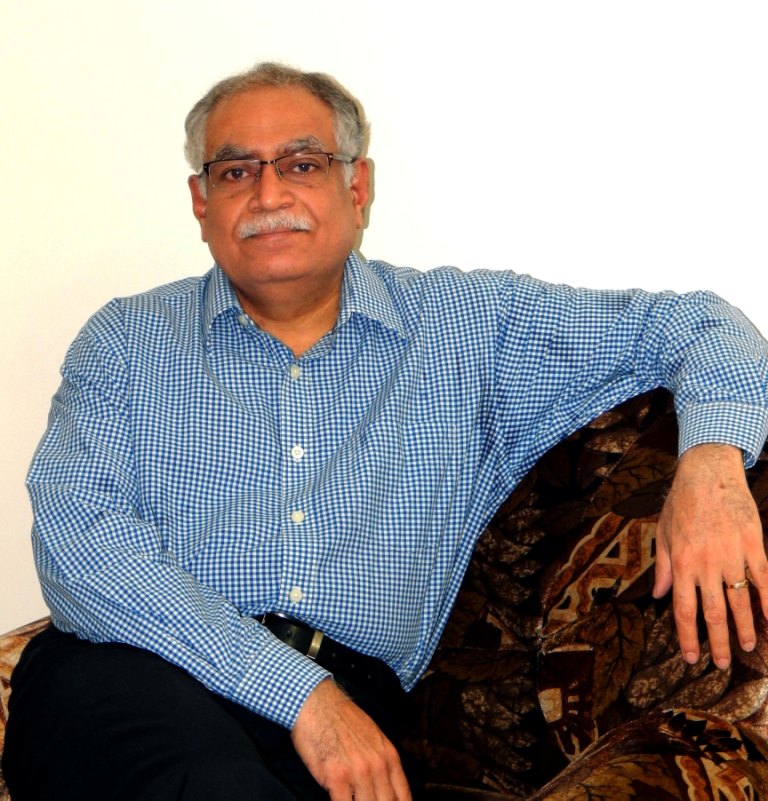Delving into his knowledge of the banking sector and the stock market, author RV Raman presented four corporate thrillers which focussed on the dark underbelly of the corporate world. This time, the author turns to writing a series of whodunits, the first of which is A Will To Kill. Set in the picturesque Nilgiris, the book is a multilayered mystery with a Christie-ish atmosphere. In an interview with Shreya Sarkar, the author discusses his love for the Golden Age Mysteries and the experience of writing a true blue murder mystery. Some excerpts:
Q} A transition from thrillers to mystery. Was this a deliberate endeavour?
Yes, it was. I have long felt that writing mysteries is more difficult than writing thrillers. In thrillers, you have multiple ways (including action) to keep the reader engrossed. You can play on emotion and adrenalin. In a traditional mystery, however, you need to engage the reader at a purely intellectual level. Your plot/evidence/dialogue/behaviour need to be tighter.
So, my first stop was to write thrillers, and the second, to do mysteries.
Q} In all your books, the setting plays an important role, the rain soaked Mumbai, the beautiful Coorg and now the breath-taking Nilgiris. What is the importance of the backdrop in mysteries?
One of the purposes of fiction is to transport the reader to another world – preferably, one that one does not inhabit. But on the other hand, the setting/location must be appropriate for the story’s context. So, when I’m writing about a banking scam (Fraudster) or about insider trading (Insider), corporate Mumbai is the place. For e-commerce (Saboteur), it must be Bengaluru. Very often however, the writer is not tied down by the story’s context.
In such situations, the writer has the luxury of transporting the reader to a Coorg or a Coonoor. It adds to the flavour of the story!My next Athreya mystery is set in Orchha, a delightful town on the banks of the Betwa, in M.P. It is a place that is rich in history and legend. I had visited it last year, and found it a perfect setting for an eerie mystery.
Q} A seasoned investigator with ample imagination, Harith Athreya shows influences of Hercule Poirot. Your comments?
Honestly, Poirot and Holmes were the characters who defined the word “detective” for me during my formative years. That Poirot influenced me is obvious.
With Athreya, I added the imagination angle for another reason. My earlier protagonists (Ranade and Dhruvi) are detectives who crack cases with visible logic. I wanted Athreya to take flights of fancy that are fuelled by his imagination. This happens extensively in the second instalment of Athreya mystery.
Q} How often do you dip into your own experiences when you etch your characters?
Pretty often, especially for the antagonists in my stories. I’d say that a third of my characters have some part in them that is from a real person– some whom I’ve liked and respected, but more often, people whom I have perceived as being unethical or disagreeable.
Q} Did you always want to write on crime fiction or develop an interest over the years?
Crime fiction, fantasy, science fiction and humour have been my mainstays. I am incapable of writing humour. So, that leaves the other three. I started with writing fantasy, which I published under the pseudonym, Kevan Dinn. I then went on to crime fiction, which I had always intended to write. I propose to write science fiction as well in the near future.
Q} You seem to be influenced by Golden age mysteries set in contemporary times. What about them influence you the most?
There are three things that I love in the Golden Age Mysteries. First, they are cerebral puzzles that invite me to solve the mystery before the protagonist does. Second, they are not soppy, and don’t rely on sentiments. Third, they take me away to a world that I had never visited (primarily 19th and 20th century England).
You can see these influences in A Will to Kill. The setting is a colonial mansion shrouded in mist, and the challenge to the reader is primarilyan intellectual one. And like many Golden Age Mysteries, it is a cozy mystery.
